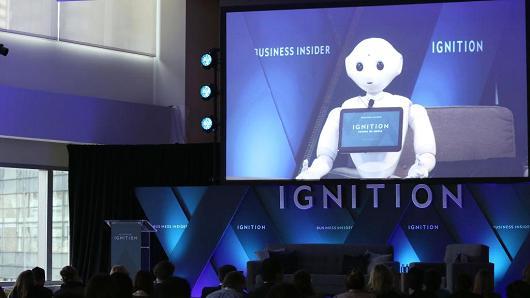Original title: How to stop 'extremely disruptive' AI from harming society: Robert Shiller
NetEase Technology News, January 19 – Before the opening of the World Economic Forum (WEF) in Davos, Switzerland, Yale University professor and Nobel Prize-winning economist Robert Shiller was interviewed by CNBC. He expressed concerns that artificial intelligence (AI) could be the most significant challenge facing the job market and even humanity itself. However, he emphasized that he already has radical but practical ideas to mitigate the potential harm AI could cause to society.

In recent years, AI has sparked widespread debate. Many fear that AI or robots will replace human workers, leading to major social and economic shifts. In 2013, a study by Oxford University predicted that 47% of U.S. jobs could be replaced by automation within two decades. This perspective has been echoed by other tech leaders. However, not everyone shares this pessimistic view. Gartner, a market research firm, suggested in a recent report that by 2020, AI could create 2.3 million jobs, surpassing the 1.8 million it might eliminate.
Shiller, who won the 2013 Nobel Prize in Economics for his work on asset prices and market inefficiencies, advocates for a form of “livelihood insurance†to address potential job losses or income drops caused by AI. He stated, “People are facing unprecedented career risks. I believe we should consider insurance programs for individuals and careers to prevent inequality from worsening. While people often worry about current events and expect government redistribution, I think we need to explore other forms of insurance-based redistribution.â€
When asked about the concept of “livelihood insurance,†Shiller explained that the idea is already being implemented in some areas but needs more support to expand. He said, “We are starting to see livelihood insurance initiatives. For example, there are web design schools that teach young people how to program and run websites. They don’t charge anything unless students find jobs above a certain income level. Then they tax the first year’s income and take 10% of it. They promise to help you get a job—if you don’t find a satisfactory one, you don’t pay anything at all.â€
Original link: https://
Coaxial Cable RG59 RG6
Conductor: Bare copper or Copper Clad Steel (Solid)
Insulation: Foamed PE
Shield: Aluminum/PET-Foil Bonded
Sheath: PVC (Polyvinyl Chloride)
Applications: Those Coaxial Cables are suitable for Digital, Analog, CATV, Satellite, Off-Air, Broadband
Coaxial Cable, Digital Coaxial Cable, RG59, RG6, CCTV Cable
Shenzhen Bendakang Cables Holding Co., Ltd , https://www.bdkcables.com
